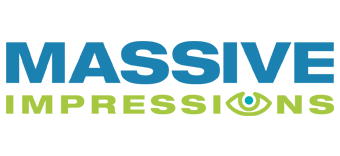Proposing a New Schema for Lab Samples & Events
Current events have revealed the need for more robust, more transparent standards for communicating information around laboratory samples, scientific samples and the events surrounding them. Artificial intelligence is becoming more and more important for drawing conclusions, recognizing trends and spotting discrepancies. Structured data is today’s best standard for expressing information unambiguously, so it can be understood by artificial intelligence. Scientific data deserves to be part of the big data revolution, so these structured data standards for handling scientific data were created by Jason Pelish, published here by Massive Impressions.
Structured data is a way of packaging information, publishing it in a manner that is more readily understood, unambiguously by artificial intelligence. It breaks down the data into pre-defined segments, and allows the segments to be structured in relationship to one another, providing context and meaning in a manner beyond prose narratives. Often this is packaged in a manner that isn’t shown to the webpage viewer, in a browser, in the manner most people see the page. It’s part of the webpage code, instead, where you’d have to view the source of the webpage to see it. When it’s there it makes it a lot easier for web crawler AI to understand what it’s seeing, understand “what you’re talking about on the page”.
The capacity to trace what happened, chronologically and contextually, to a scientific sample before and through its analysis, is called traceability. Recording and publishing the traceability information around a sample, is an important requirement for the record keeping & sharing of in laboratory data systems. This proposed structured data schema is designed to be as inclusive as possible, yet flexible for cases when information is not known.
This structured data schema is designed to be part of the output of laboratory data systems.
The objects and events in this proposed schema are intended to be used as a requirement guideline for publishing and sharing information about analysis samples through electronic systems. It uses a structured data schema format devised to make the data around scientific samples intended more unambiguously understood, exportable and importable. Developers of lab data systems and developers of laboratory information management systems are urged to consider these standards for futureproofing client’s systems moving forward. This Proposed Schema for Laboratory Analytical Data: Analysis Samples is not officially part of Schema.org‘s published dictionary. It is therefore subject to revision.
———————————————–

Suggested structured data specification includes 5 new schema types and several new properties for each.
Massive Impressions has produced several WordPress related products: selling them and licensing them directly. The low entry cost of a private WordPress instance makes it an ideal multi-user, web-based content management platform that practically any organization can manage. For example, sans “special offers” the cost for a fresh new WordPress instance is $10/month. By adding functionality on top of the WordPress core, WordPress can be used as a very specialized system for cataloging and sharing information. It can even be installed on a stand-alone laptop that’s disconnected from networks most of the time. This creates a barrier to entry that’s low enough where even the smallest clinics and labs can afford high quality lab data management systems, accessible securely even on cell phones.
This year opened people’s eyes to the power of disruptive, unexpected events. A greater need emerged for a better methodology for communicating and managing scientific sample information. An ideal system can be parked on major clouds or installed on-site, in small labs, and in remote places, in a unified, easy to manage platform. An open system, leveraging open source platforms and open standards lets organizations and IT Professionals meet goals more quickly, in a more cost-effective manner. Massive Impressions is helping to make this happen.
———————————————–
Jason Pelish has designed and deployed laboratory information management systems, configured content management systems for a wide range of ontologies, and created publishing tools. Let him know if you have ideas or suggestions to contribute at jason@massiveimpressions.com.




